Filter by

At Home in Renaissance Bruges: Connecting Objects, People and Domestic Spaces…
- Edition
- Ed. 1
- ISBN/ISSN
- -
- Collation
- -
- Series Title
- -
- Call Number
- -
- Edition
- Ed. 1
- ISBN/ISSN
- -
- Collation
- -
- Series Title
- -
- Call Number
- -

Women and the Colonial State: Essays on Gender and Modernity in the Netherlan…
Woman and the Colonial State deals with the ambiguous relationship between women of both the European and the Indonesian population and the colonial state in the former Netherlands Indies in the first half of the twentieth century. Based on new data from a variety of sources: colonial archives, journals, household manuals, children's literature, and press surveys, it analyses the women-state re…
- Edition
- Ed. 1
- ISBN/ISSN
- 9789053564035
- Collation
- 251
- Series Title
- -
- Call Number
- 901 LOC w
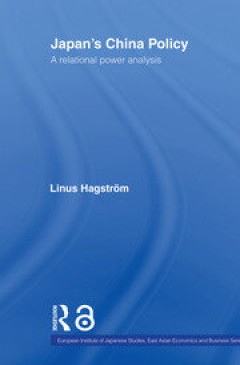
Japan's China Policy
ABSTRACT Japan's China Policy understands Japan's foreign policy in terms of power - one of the most central concepts of political analysis. It contributes a fresh understanding to the subject by developing relational power as an analytical framework and by applying it to significant issues in Japan's China policy: the negotiations for a bilateral investment protection treaty and the disputed …
- Edition
- -
- ISBN/ISSN
- 9780203023792
- Collation
- -
- Series Title
- -
- Call Number
- 370

The Political Attitudes of Divided European Citizens : Public Opinion and Soc…
ABSTRACT The Open Access version of this book, available at https://www.taylorfrancis.com/books/e/9781003046653, has been made available under a Creative Commons Attribution-Non Commercial-No Derivatives 4.0 license. This book unveils the significant impact of the European integration process on the political thinking of European citizens. With close attention to the interrelation between s…
- Edition
- -
- ISBN/ISSN
- 9781003046653
- Collation
- -
- Series Title
- -
- Call Number
- 320
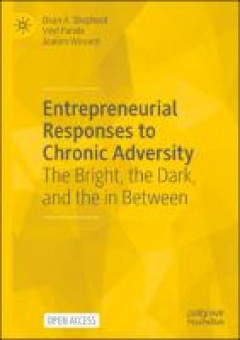
Entrepreneurial Responses to Chronic Adversity: The Bright, the Dark, and the…
This open acess book extends recent work on entrepreneurship in response to adverse events to explore entrepreneurial responses by people who face chronic adversity more deeply. Instead of focusing on the sort of responses intended to destroy the institutions that create and sustain chronic adversity, the authors are interested in how individuals use entrepreneurial action to find a way within …
- Edition
- Ed. 1
- ISBN/ISSN
- 9783031048845, 9783031048845
- Collation
- 213
- Series Title
- -
- Call Number
- 338.04 SHE e
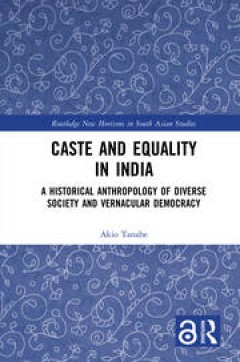
Caste and Equality in India
ABSTRACT This book presents an alternative view of caste in Indian society by analysing caste structure and change in local communities in Orissa from historical and anthropological perspectives. Focusing on the agricultural society in the Khurda district of Orissa between the eighteenth century and 2019, the book links discussions on the current transformation of society and politics in In…
- Edition
- -
- ISBN/ISSN
- 9781003173519
- Collation
- -
- Series Title
- -
- Call Number
- 370

Medieval Arabic Historiography
BSTRACT Medieval Arabic Historiography is concerned with social contexts and narrative structures of pre-modern Islamic historiography written in Arabic in seventh and thirteenth-century Syria and Eygpt. Taking up recent theoretical reflections on historical writing in the European Middle Ages, this extraordinary study combines approaches drawn from social sciences and literary studies, with a…
- Edition
- -
- ISBN/ISSN
- 9780203965290
- Collation
- -
- Series Title
- -
- Call Number
- 370
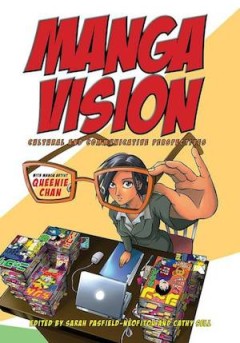
Manga Vision : Cultural and Communicative Perspectives
Manga Vision examines cultural and communicative aspects of Japanese comics, drawing together scholars from Japan, Australia and Europe working in areas as diverse as cultural studies, linguistics, education, music, art, anthropology, and translation, to explore the influence of manga in Japan and worldwide via translation, OEL manga and fan engagement. This volume includes a mix of theoretical…
- Edition
- -
- ISBN/ISSN
- 9781925377071
- Collation
- -
- Series Title
- -
- Call Number
- 700 MAN
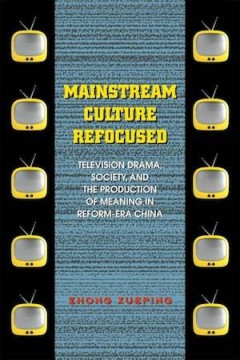
Mainstream Culture Refocused : Television Drama, Society, and the Production …
Serialized television drama (dianshiju), perhaps the most popular and influential cultural form in China, offers a wide, penetrating look at the tensions and contradictions of the post-revolutionary and pro-market period. Zhong Xueping's timely new work argues for recognizing the complexity of dianshiju's melodramatic mode and its various subgenres, in effect "refocusing" mainstream Chinese cul…
- Edition
- -
- ISBN/ISSN
- 9780824834173
- Collation
- -
- Series Title
- -
- Call Number
- 700 ZHO m

John C. Parkin, Archives and Photography Reflections on the Practice and Pres…
Architectural practice in post-World War II Canada brought substantial change to the face of the Canadian built environment, led by the contribution of John C. Parkin. As senior partner at the Toronto-based architectural firm John B. Parkin Associates (no relation) from 1947 to the 1970s, Parkin oversaw the creation of a large number of modernist projects, including hospitals, airports, schools…
- Edition
- -
- ISBN/ISSN
- 9781552386392
- Collation
- -
- Series Title
- -
- Call Number
- 720 FRA j
 Computer Science, Information & General Works
Computer Science, Information & General Works  Philosophy & Psychology
Philosophy & Psychology  Religion
Religion  Social Sciences
Social Sciences  Language
Language  Pure Science
Pure Science  Applied Sciences
Applied Sciences  Art & Recreation
Art & Recreation  Literature
Literature  History & Geography
History & Geography